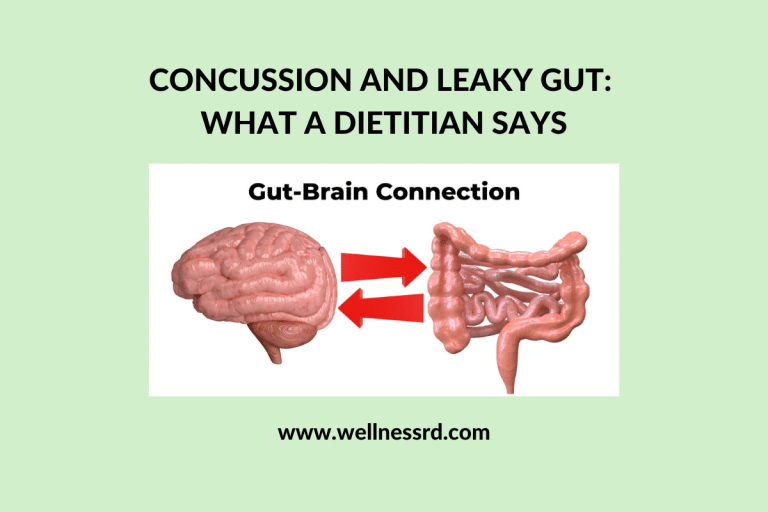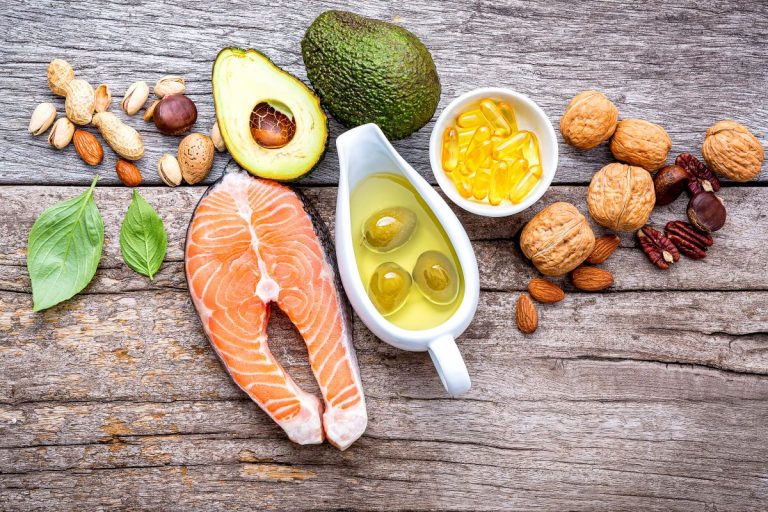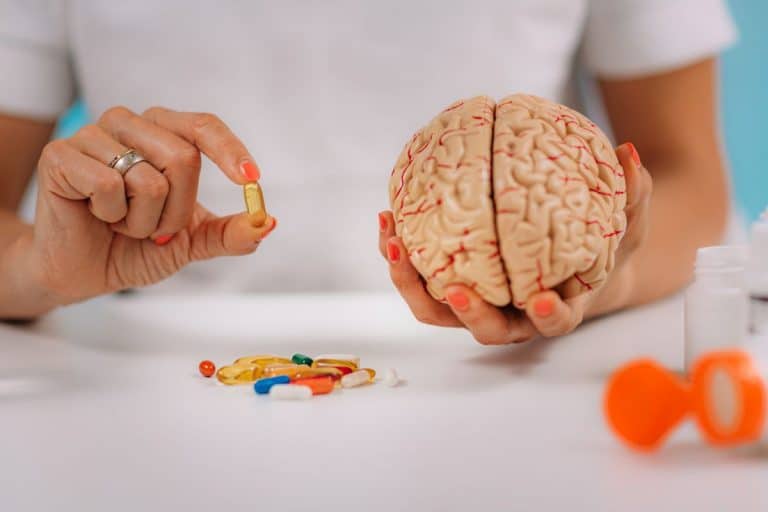BCAA or Creatine: Dietitian Recommendations for Concussion
BCAA or creatine?
What is the difference between BCAAs and creatine?
Can taking BCAA (Branched-Chain Amino Acids) or creatine improve brain health and concussion recovery?
In this article, we will discuss the importance of concussion recovery, the comparison between BCAAs and creatine and their role in brain health and concussion recovery, as well as dietary sources and supplements recommendations from a registered dietitian to support your brain health.
This information is for educational purposes only. As with any medical advice, always check with your doctor or healthcare professional for personal and age-appropriate recommendations.
Want a copy of this article? Click here to download a copy.
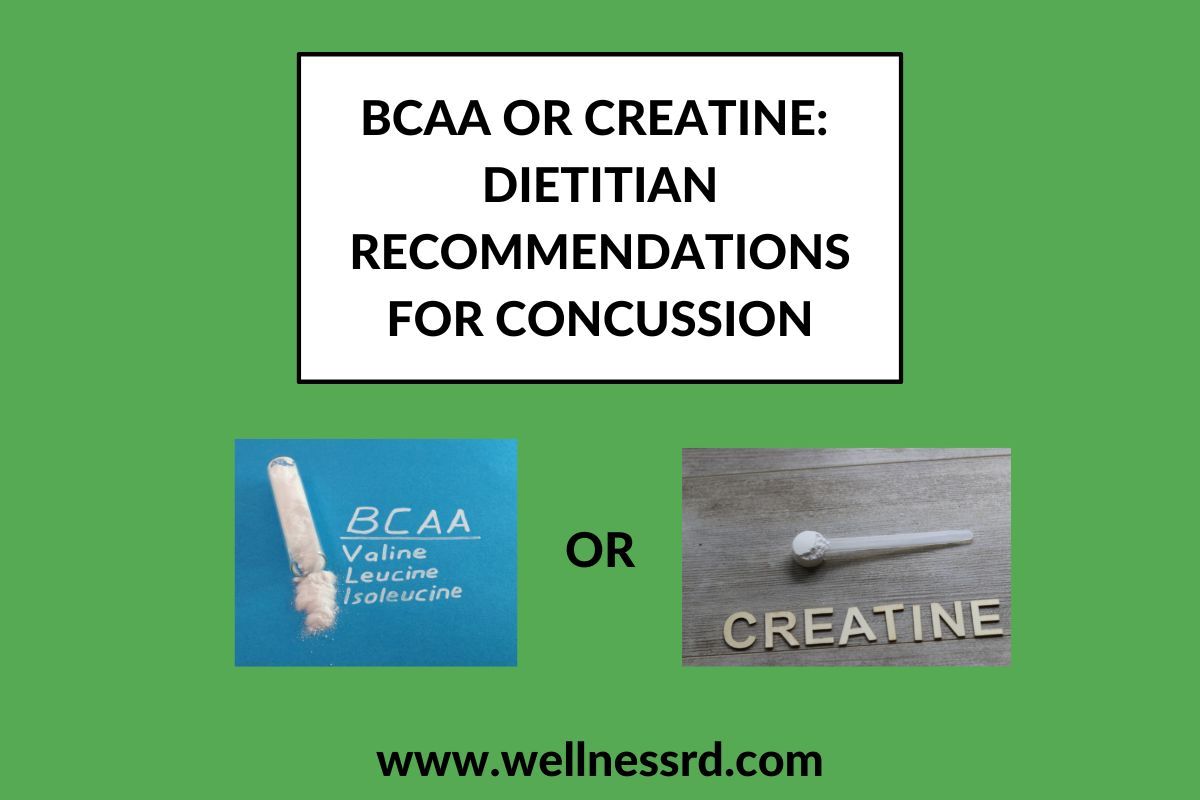
Table of Contents
What is a Concussion?
A concussion is caused by a blow to the head, violent shaking of the head, or can even happen with a hit to the body that causes the brain to shake back and forth.
You may have heard of concussions happening from a sports-related injury, a fall, or a worksite accident. A concussion, also called mild traumatic brain injury, can even happen by simply hitting your head on a cabinet, or bumping your head on the shower door by accident.
Some of the most common symptoms of concussion include:
- Headache
- Nausea
- Balance or vision problems
- Confusion.
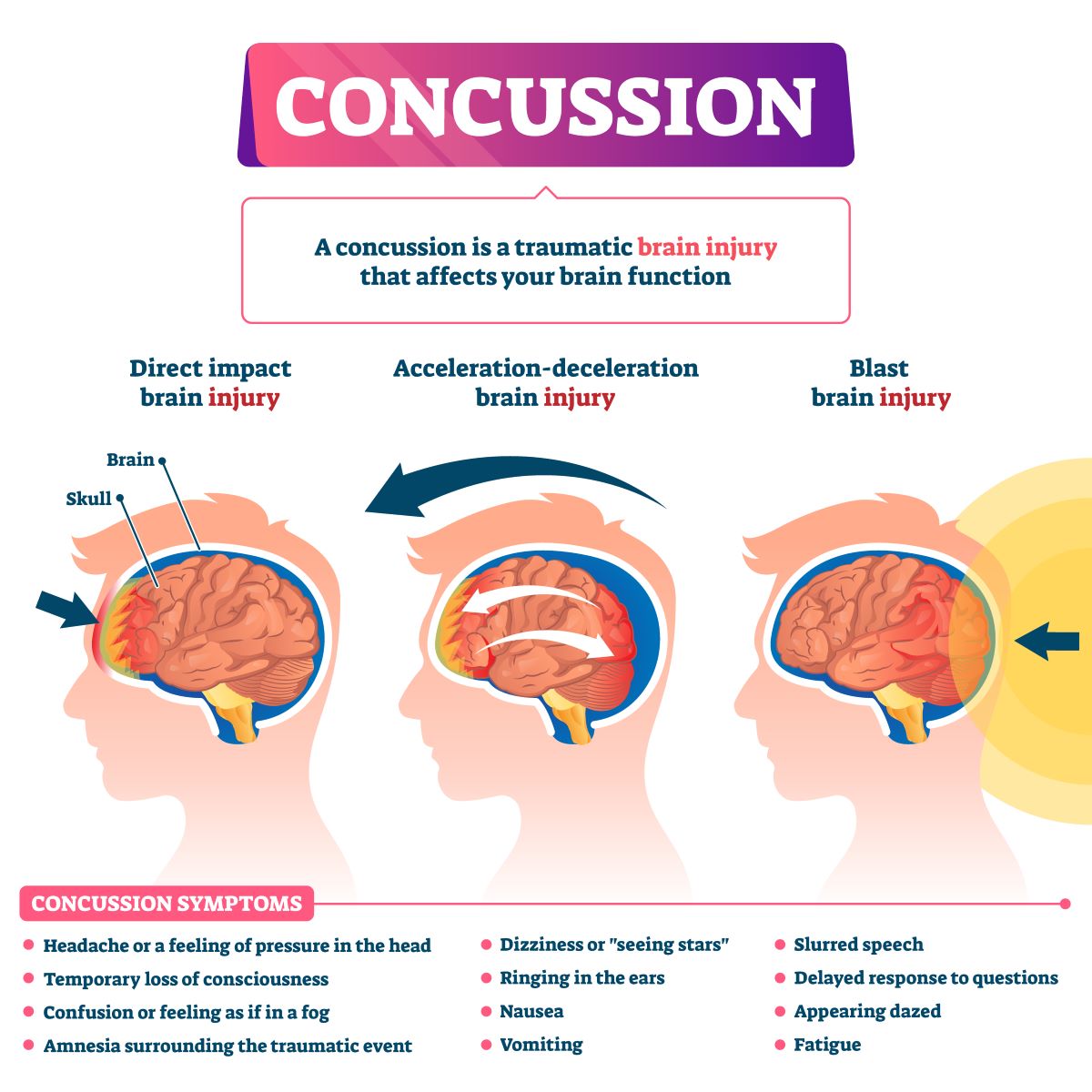
Importance of Proper Recovery for a Concussion
Initial treatment with a concussion involves removal from activity with a rest of at least 24-72 hours, treatment of current symptoms, and prevention of further injury until healed (1, 2).
You should get checked by a medical professional as soon as possible after a mild traumatic brain injury (mTBI) as early treatment is beneficial.
Some of the treatments recommended by a qualified health professional after an initial rest period may include a combination of (3):
- Aerobic exercise
- Cervical physical therapy
- Vestibular therapy
- Vision therapy
- Cognitive rehabilitation
- Cognitive behavioral therapy
- Pharmacological management
- Nutrition interventions
As a registered dietitian nutritionist, I have seen functional nutrition treatment help with symptom reduction and improving gut-brain health with concussion.
What about BCAAs and Creatine Supplements for Concussion Recovery?
Nutrition and supplements play an important role in brain health and concussion recovery. BCAA and creatine have been studied as potential supplements to support your road to recovery.
Branched Chain Amino Acids (BCAA) for Concussion Recovery
What are BCAA’s?
Branched-chain amino acids are essential amino acids since they are not made by the body and must be obtained from diet or through supplementation. These amino acids include:
- Leucine
- Isoleucine
- Valine
These amino acids are “branched” and are known to support muscle recovery and growth, reduce muscle fatigue, and prevent muscle wasting with leucine being the most anabolic for muscle growth (4). They can be utilized in the muscle directly without having to go through the liver.
How do BCAAs affect the brain?
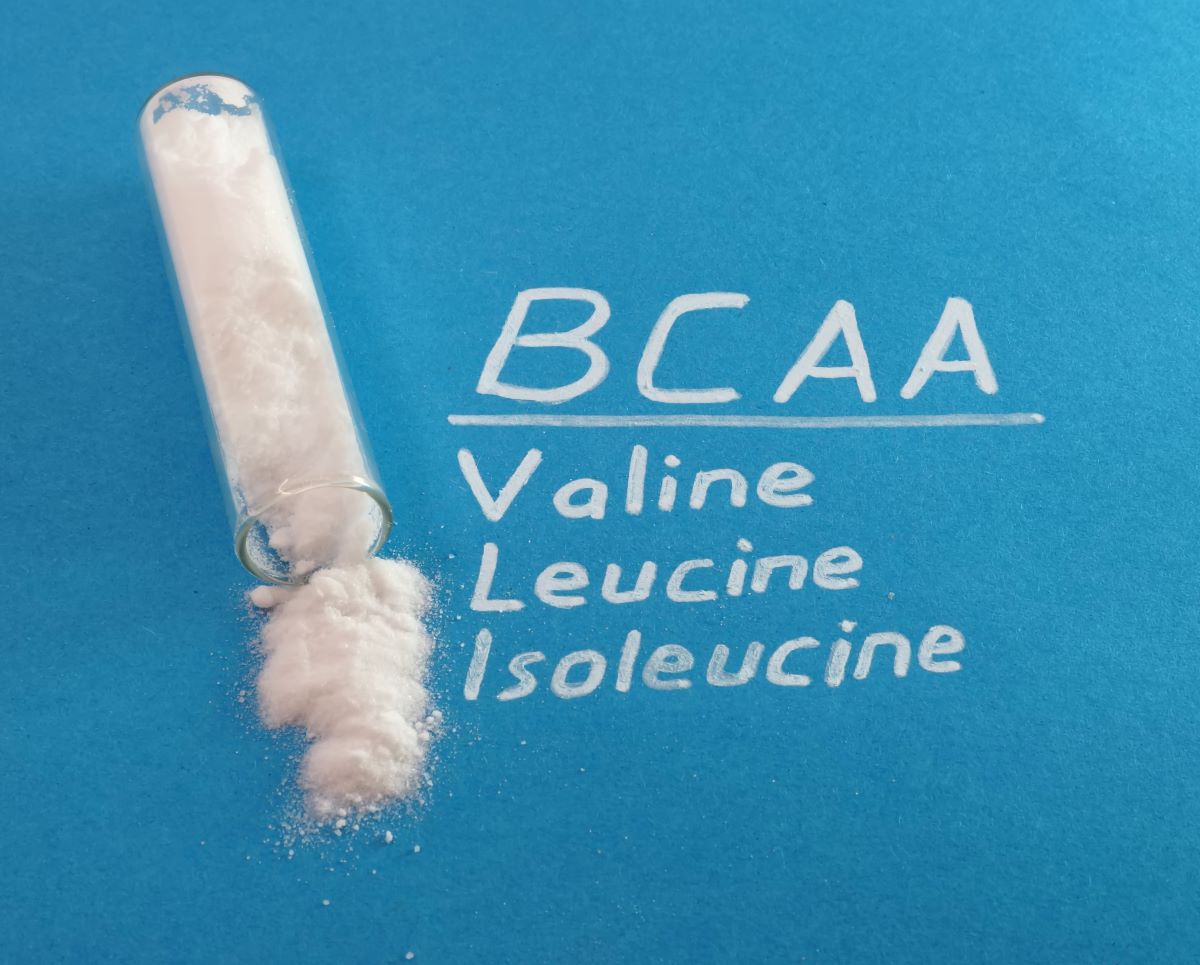
Can BCAAs Improve Concussion Recovery?
One animal study in 2022 demonstrated protection of the brain and an enhanced rate of recovery when BCAAs were given before TBI. BCAAs were neuroprotective (protecting our neurons from injury) as these amino acids are important for the production of the neurotransmitter glutamate and gamma-aminobutyric acid (GABA) (5).
Another study showed reduced BCAAs in both mild and severe traumatic brain injury (TBI) subjects. Lower amounts of BCAAS were seen in the severe TBI group suggesting a reduction of BCAAs was associated with the severity of TBI (6).
A small study of veterans examined sleep improvement after TBI showing positive results when 30 gm b.i.d BCAA for 21 days were consumed to treat insomnia and sleep disruptions (7).
In summary, BCAAs may provide protection from TBI and they also may reduce some symptoms such as insomnia. However, limited human studies are available on BCAAs and concussion, so more studies are needed to confirm their efficacy.
BCAA Sources
You can get BCAA through your diet so supplements may not be necessary,
Getting some BCAAs in your body is important and they can come from BCAA supplements, protein powder, or from egg, meat, or poultry.
Creatine for Energy
What is Creatine?
Creatine monohydrate supplementation increases muscle creatine and muscle mass to improve sports performance and strength (8). More recently, creatine has been studied for improving brain health (9).
About 95% of the body’s creatine is stored in the muscles, however, some is in the brain, heart, and other tissues (10). Creatine is widely used for improving athletic performance, but it is also being studied for health conditions such as (11, 12):
- Diabetes
- Sarcopenia
- Osteoporosis
- Cancer
- Cognition
- Cardiovascular health
Let’s take a look at some of the brain benefits of creatine.
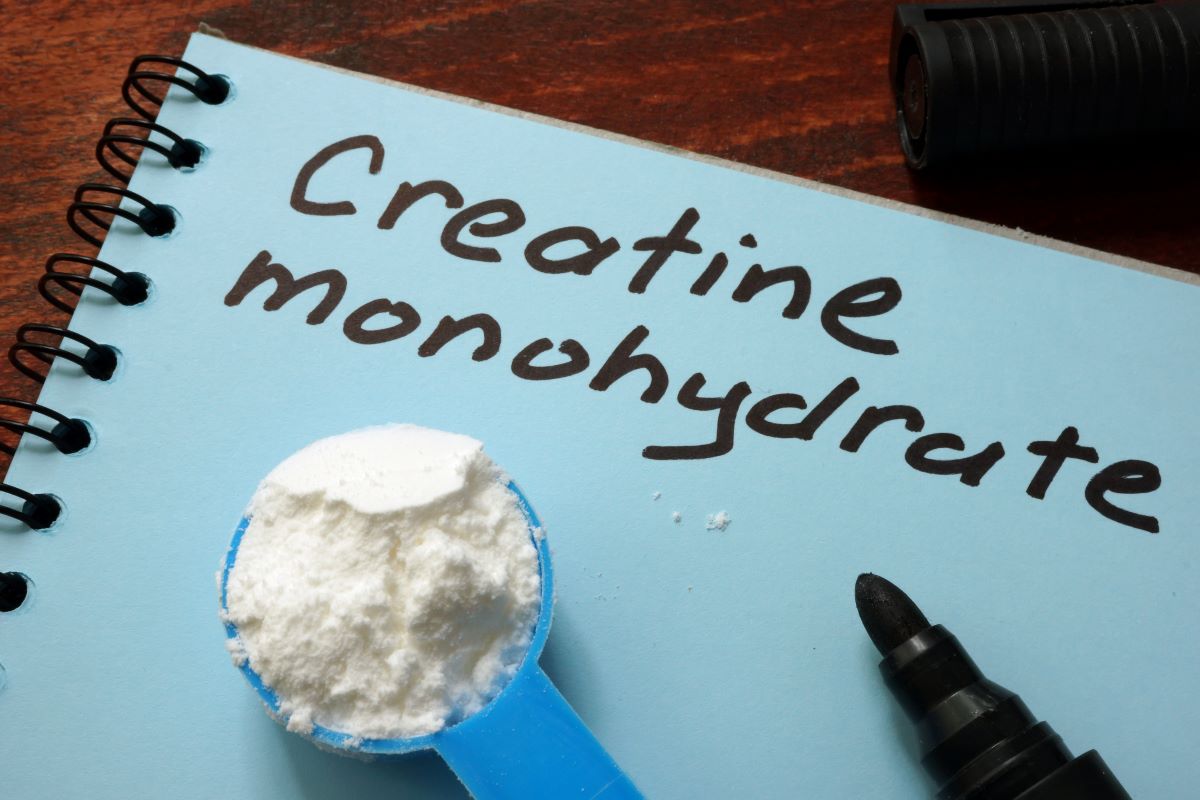
Creatine’s Role in Energy Production
The brain consumes about 20% of our energy but it only weighs about 3 pounds (13). Creatine is necessary to make energy in our body (also called ATP-adenosine triphosphate).
Creatine crosses the blood-brain barrier therefore, oral creatine monohydrate can increase creatine levels in the brain (14). Higher levels of brain creatine allow the nerve cells in the brain to produce more energy (15).
Creatine for Concussion Recovery
Studies find creatine supplementation protects your nerve cells before and after a traumatic brain injury although more research is needed for concussion (16, 17).
A review published in 2023 demonstrated that creatine supplementation has the potential to reduce anxiety and depression in children during recovery from traumatic brain injury (18).
Creatine Sources
Dietary food sources of creatine include red meat, poultry, fish, pork, and dairy products.
Generally, a creatine supplementation protocol may include a short “loading dose” for about 3-7 days with about 15–20 g/day of creatine and a maintenance dose of 3–10 g/day (19).
Always check with your healthcare provider for individual recommendations.
Comparison between BCAAs and Creatine
Both BCAAs and creatine support healthy muscles. Creatine has more benefits as we discussed including increasing energy as well as improving other health conditions.
Final Thoughts on BCAAs and Creatine for Concussion
Nutrition plays an important role in brain health and concussion recovery.
BCAAs and creatine are widely used for athletic performance.
BCAA and creatine have been studied as potential supplements to support your brain health including concussion.
BCAAs support muscle recovery and growth, reduce muscle fatigue, and prevent muscle wasting with leucine being the most anabolic for muscle growth.
You can get BCAA through your diet.
Creatine supports your muscles and energy production. It is also being studied for many other health conditions.
Both BCAAs and creatine support healthy muscles however, creatine has more research and benefits for the brain and concussion such as increasing energy.
© Amy Archer RDN, CLT, CHWC


